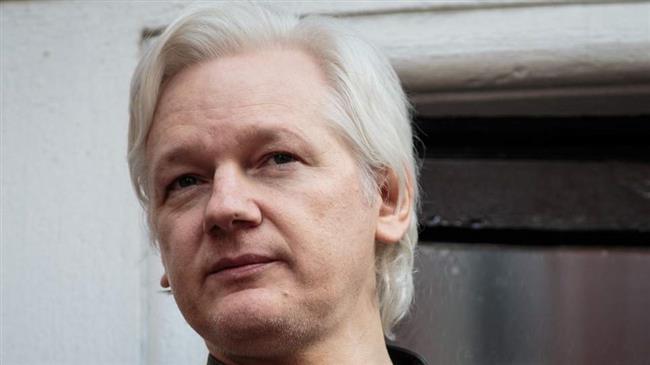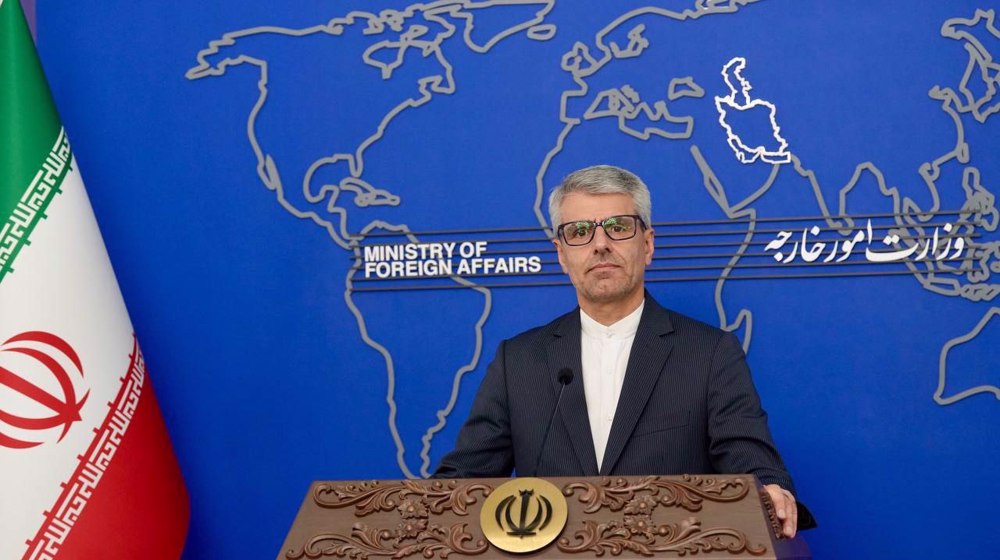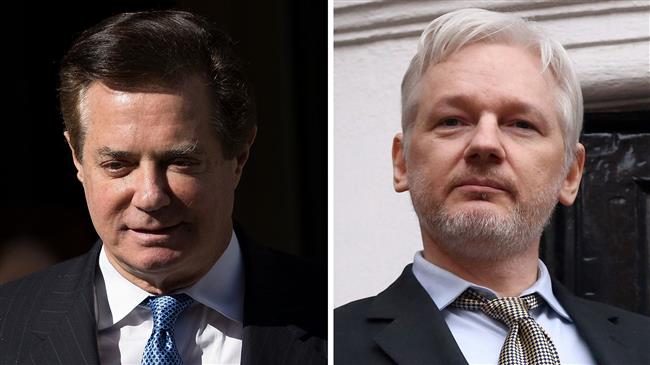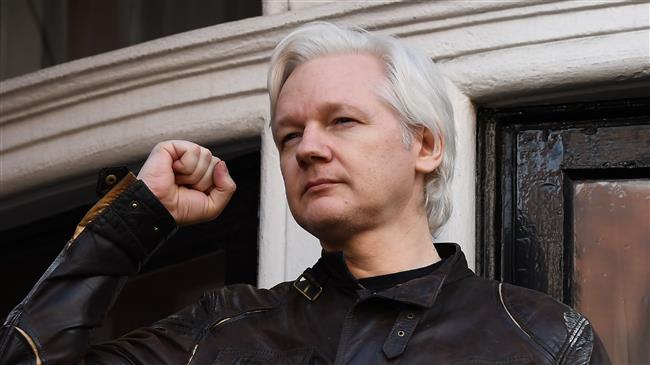WikiLeaks founder Assange rejects UK-Ecuador deal to leave embassy
WikiLeaks founder Julian Assange has rejected a proposed plan by Ecuadorean president to leave the country’s embassy in London with his lawyers insisting that the deal would not shield him against persecution and potential extradition to the US.
Assange’s legal team dismissed the agreement with British authorities, as described by President Lenin Moreno in an interview with a local radio station, emphasizing that it would not offer their client protection against “persecution” and likely handover to the US, where he is wanted for criminal charges of unveiling classified military and government information.
Moreno said there was now a “path” for Assange’s exit from the Ecuadorean Embassy in London -- where he has been holed up for six years – following a deal with the British government, based on which “he would not be extradited to any country with the death penalty,” UK-based daily Independent reported Friday.
“The way has been cleared for Mr. Assange to take the decision to leave in near liberty,” Moreno said as quoted by the daily, which further pointed to his eagerness to end the long residence of the whistleblower at the diplomatic compound.
The Ecuadorean president, however, did not precisely explain what he meant by “near liberty, only asserting that UK authorities had guaranteed Assange would not be extradited anywhere that would put his life in danger.
Firmly rejecting Moreno’s plan, Assange’s attorney Barry Pollack said, “the suggestion that as long as the death penalty is off the table, Mr Assange need not fear persecution is obviously wrong.”
“No one should have to face criminal charges for publishing truthful information,” Pollack added during an interview with British daily The Telegraph. “Since such charges appear to have been brought against Mr Assange in the United States, Ecuador should continue to provide him asylum.”
According to the report, Moreno, however, also conceded that Assange could still face a prison term in Britain for violating bail terms when he sought asylum to avoid being extradited to Sweden, where authorities wanted to question him as part of a sexual assault investigation, which was later dropped.
Moreno also underlined during his interview with a local broadcaster that the sentence for skipping bail in the UK would be “not long,” noting that Britain has told Ecuador that his jail time would not exceed six months and that he would not face extradition if he left the embassy.
“I do not like the presence of Mr Assange in the Ecuadorean embassy, but we have been respectful of his human rights and with that respect in mind we think that six years is too long for someone to remain nearly incarcerated in an embassy,” added the Ecuadorean president.
Assange’s lawyers have insisted that Ecuador is trying to end his asylum and turn him over to the US, where prosecutors are seeking to bring criminal charges against him.
WikiLeaks said the US Justice Department had “accidentally revealed” sealed charges with unspecified offences in November.
The whistleblower website has published thousands of classified US military documents, among other disclosures.
From MKO to Tondar, how Germany became safe haven for anti-Iran terror groups
Hamas open to any proposal aiming to end Gaza war: Hamdan
Role of private sector in Iran’s thriving space industry
Four Palestinians killed in Israeli strikes on West Bank
Iran warns of ‘calculated, precise’ response to Israeli aggression
After year-long genocide, Israeli military hires private firms to flatten buildings in Gaza
Malaysia working on resolution to expel Israel from United Nations
Israeli military made no territorial gain in Lebanon: Report














 This makes it easy to access the Press TV website
This makes it easy to access the Press TV website